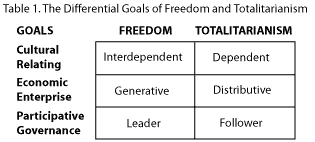Case Study Venezuela
1. The Price of Freedom
(Listen to the audio of this blog.)
Thanks for signing on. I’m Bob Carkhuff, and this is Freedomblog.com from our series “Case Study Venezuela.â€
The theme for today is The Price of Freedom.
For thinking people, this means “Eternal Vigilance!â€
It is an old Hispanic proverb that says that parents whose children precede them in death live lives of hell here on Earth. Having reached the threshold of our maturity at precisely the same time as Venezuela’s in becoming South America’s first free democracy, we mourn Venezuela’s fall into the oblivion of totalitarianism.
How fragile the freedom!
How fleeting its time!
How profound its fall!
Nowhere is this more true than in the fallen Venezuelan people.
- They did not relate collaboratively across classes.
- They did not initiate entrepreneurially in free enterprise.
- They did not engage participatively in democratic government.
In short, they did not pay “The Price of Freedomâ€â€”the “eternal vigilance†that it demands. Now it is gone. Perhaps not forever!
It is not our purpose to define a democratic revolution that was stolen from Venezuela by its current dictator, in an election “blessed†by a former U.S. President, Carter, and the OAS, and condemned as fraudulent by scientists from M.I.T. and Harvard. It is not simply the intimidation and fraud before, during and after the referendum that destroyed Venezuelan freedoms. It is the lack of the “eternal vigilance†to protect the freedoms that Jefferson cautioned. Now the Venezuelan people must suffer the consequences:
- This precious democracy, the first in Latin America and not yet 50 years old, is being transformed into a totalitarian state under the harsh repression of an “elected†dictator.
- The leading economy in Latin America where workers earnings have been cut in half, the most precipitous decline of Per Capita GDP in recorded economic history.
- The class relations that were exemplary among all Latin countries have been “incendiarized†into class struggle and violence.
So where did a Free People go wrong? How did they allow themselves to become “inmates in jails†of their own making?
Signing off for Freedomblog, this is Bob Carkhuff.
Remember, We the People cannot relax our vigilance. Think about it!
We invite your comments. Send to Bob at Freedomblog.com.
“May the road rise to meet you,
And the wind be at your back.â€

